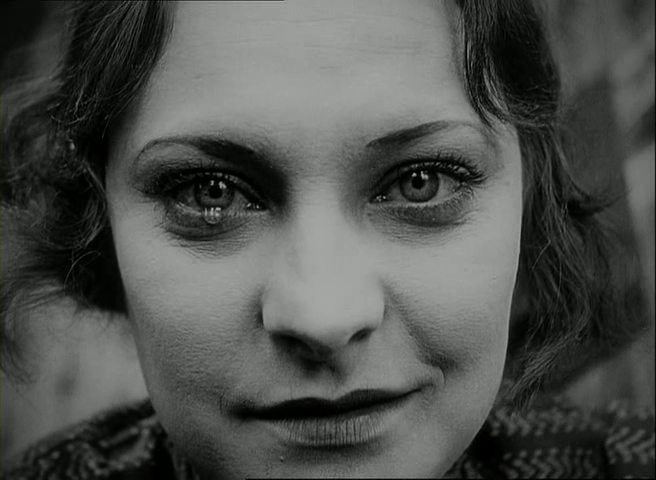Beyond the screen: Human connections show why film lovers continue to gather for Ebertfest
Photo Courtesy of Cinematheque Francais.
Gina Manes in the French silent film “Coeur fidèle” (“The Faithful Heart”). The film tells the story of a young woman, her alcoholic husband and her lover. Roger Ebert Fellow Curtis writes that despite the lack of a compelling narrative, the film makes up for it with its visual experimentation and live music accompaniment.
April 13, 2019
Editor’s note: Each year, the University of Illinois College of Media Roger Ebert Fellows cover the Ebertfest film festival at Champaign’s Virginia Theatre, continuing through Saturday. Here they report on the first two days of the festival. For more of the 2018-19 Ebert Fellows coverage, go to Illinois Public Media at will.illinois.edu and, early next week, rogerebert.com.
Built in 1921, the 1,463-seat Virginia Theatre hosts the Roger Ebert Film Festival. Commonly referred to as Ebertfest, the 21-year-old festival brings together industry professionals and film lovers for a unique cinematic gathering.
The first film on the Thursday docket, screened after an early morning of discussion panels, was the 1923 French silent film “Coeur fidèle” (“The Faithful Heart”), directed by Jean Epstein. Depicting a caustic love triangle between a young woman, her abusive husband and her forlorn sweetheart, the film presents itself as typical melodrama, touching on themes of jealousy, domestic violence and revenge.
“Coeur fidèle” makes up for the lack of a compelling narrative with its visual experimentation. Epstein’s affinity for close-ups and camera magic is on display throughout. However, the true highlight was the live musical accompaniment provided Thursday by the Alloy Orchestra, a three-man ensemble specializing in original silent film scores.
Utilizing a plethora of instruments, including a banjo, accordion, clarinet and the self-described percussive “rack of junk,” the trio created a soundscape that was by turns romantic, jaunty and steeped in nostalgia for lost love. At times, the musicians added discordant accordion chords and the screeches of scraping metal as complements to furiously clenched fists and livid faces. Thanks to the Alloy trio, the screening of this silent film was transformed into a more immersive experience.
Get The Daily Illini in your inbox!
The final screening of Thursday night may prove to be the festival’s highlight. Made by the Wachowski siblings best known for “The Matrix” trilogy, the 1996 seduction thriller “Bound” graced the huge 56’ x 23’ Virginia screen in brilliantly gritty fashion, projected in increasingly rare 35mm film. The “Bound” print, dusty and scratched to all hell, mirrored the grimy subject matter encased in its emulsion, bringing a unique charm to the proceeding.
Watching Gina Gershon and Jennifer Tilly on screen, the word that comes to mind is “chemistry.” Their magnetism is so powerful, you’d think they had known each other for years before shooting. In their first scene of truly meaningful interaction, a meeting in Gershon’s character’s unfurnished apartment, the two perform a tantalizing tango as they circle each other, exploring the empty space with the grace of ballerinas and the quiet intensity of femme fatales from the golden age of Hollywood.
An audacious and challenging debut, “Bound” tells a taut tale of two lesbian lovers, Corky and Violet, who develop a scheme to steal $2 million in cash from Violet’s money-laundering boyfriend Caesar (Joe Pantoliano). Sexy, violent and often absurdly funny, “Bound” champions its smart heroines, placing them at the forefront. Given how convoluted the plot can be at times while tackling racy subject matter without falling into farce or smut, it’s a wonder the Wachowskis got their film made at all. It’s a debut feature carrying a sensitivity and subtlety too often absent from first-time works.
The real treat Thursday wasn’t the film itself. The tag-team antics of Ebertfest guests Tilly and Gershon, who conducted a post-screening Q&A well past midnight, covered everything from women in film to vegan podcasts to eight different takes of the film’s notorious love scene, to the crowd’s delight. Beforehand, festival programmers showed a short snippet of Gene Siskel and Roger Ebert’s film review show “At the Movies” from their 1996 report on “Bound.” It reminded us why we all had gathered in the Virginia Theatre on this rain-soaked Thursday night: As proven so often in Siskel and Ebert’s on-screen conversations, making human connections through the movies can often be more valuable than the films themselves.
Curtis is a 2018-19 Roger Ebert Fellow.







